Top news and views about Environment and Cleantech for 4 Jul 2017
CrowdifyClub Category: Environment and Cleantech
(Tip: To open the tweet in a new window 'Right-Click' the 'Tweet This Story' text and 'Open link in new tab')
World has three years to prevent dangerous climate change, warn experts
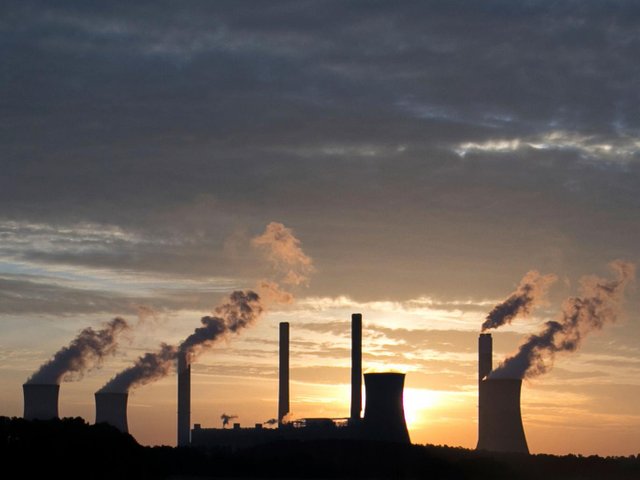
The world has three years to start making significant reductions in greenhouse gas emissions or face the prospect of dangerous global warming, experts have warned in an article in the prestigious journal Nature.
Calling for world leaders to be guided by the scientific evidence rather than “hide their heads in the sand”, they said “entire ecosystems” were already beginning to collapse, summer sea ice was disappearing in the Arctic and coral reefs were dying from the heat.
The world could emit enough carbon to bust the Paris Agreementtarget of between 1.5 to 2 degrees Celsius in anything from four to 26 years if current levels continue, the article said.
Global emissions had been rising rapidly but have plateaued in recent years. The experts, led by Christiana Figueres, who as Executive Secretary of the United Nations Framework Convention on Climate Change played a key role in the Paris Agreement, said they must start to fall rapidly from 2020 at the latest.
Full story at http://ind.pn/2tvJUVL
Source: Independent
A million bottles a minute: world's plastic binge 'as dangerous as climate change'
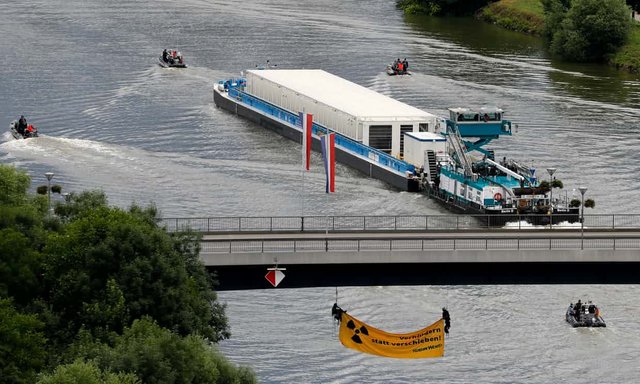
Of all the hazards facing humankind, climate change is the single greatest threat we have ever faced. In a few short decades, we have altered the climate more than we ever thought possible and now, in the midst of the greatest heatwave recorded in decades in the hottest year on record, we are finally beginning to countenance the scale of problem before us.
The poorest of the poor have been the first to suffer – droughts and food shortages are already imperilling the lives of countless millions, with ensuing conflicts threatening even more. We have rendered some areas uninhabitable, and the number of climate refugees will only increase. Even we privileged folk in the western world are no longer immune, with the dangers steadily encroaching.
The vast majority of the carbon and greenhouse gases we spew into the atmosphere are generated by our need for energy, prompting the late Prof Sir David MacKay to observe that “the climate problem is mostly an energy problem”. Clearly then, we must reduce our carbon emissions drastically, and it is likely that nuclear power will play a substantial role in this endeavour. Yet despite the pressing nature of the problem, there are few topics as consistently contentious as the one of nuclear power, and the long history of opposition to it cannot be ignored.
Fears about nuclear energy run deep: the 1986 Chernobyl disaster remains a towering linchpin in anti-nuclear narratives, presented as an irrefutable case that nuclear energy is inherently unsafe. These claims are so profoundly entrenched that it is almost accepted as common knowledge that the Chernobyl disaster killed thousands.
Full story at http://bit.ly/2tvJWgl
Source: The Guardian
UK risks becoming 'dumping ground' for plastic after Brexit
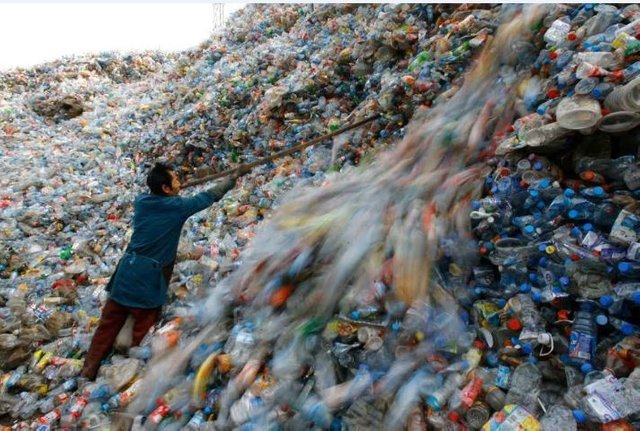
A million plastic bottles are bought around the world every minute and the number will jump another 20% by 2021, creating an environmental crisis some campaigners predict will be as serious as climate change.
New figures obtained by the Guardian reveal the surge in usage of plastic bottles, more than half a trillion of which will be sold annually by the end of the decade.
The demand, equivalent to about 20,000 bottles being bought every second, is driven by an apparently insatiable desire for bottled water and the spread of a western, urbanised “on the go” culture to China and the Asia Pacific region.
More than 480bn plastic drinking bottles were sold in 2016 across the world, up from about 300bn a decade ago. If placed end to end, they would extend more than halfway to the sun. By 2021 this will increase to 583.3bn, according to the most up-to-date estimates from Euromonitor International’s global packaging trends report.
Full story at http://bit.ly/2tvAo4P
Source: The Guardian
Very strong' climate change signal in record June heat
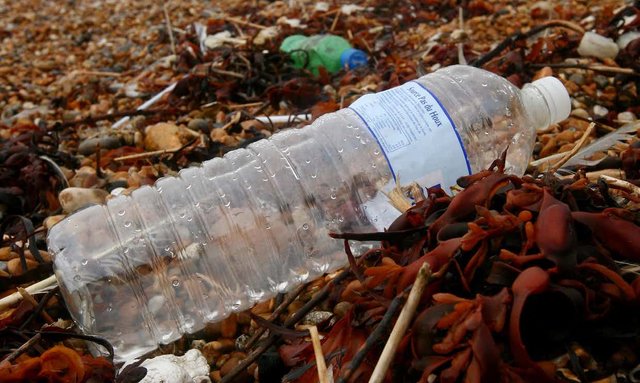
The UK risks becoming the “dirty man of Europe” after Brexit with no plan to deal with the millions of plastic bottles dumped by consumers every week, according to politicians and leading environmental campaigners.
The EU is currently drawing up an ambitious “circular economy” strategy which aims to make manufacturers take greater responsibility for the way the billions of plastic bottles produced each year are disposed of, collected and recycled.
But leading EU figures and environmental groups warn that the UK will not be bound by the new deal once outside the EU and so risks becoming a dumping ground for plastic and other waste.
Javor Benedek, vice-chair of the EU environment committee, said: “The UK risks falling behind the rest of the EU in the way it deals with the issue of plastic waste and plastic bottles, with little effort for waste prevention and better recycling, less onus on big producers to take responsibility and ultimately more plastic ending up in illegal dump sites or the ocean.”
Full story at http://bit.ly/2tvDVAi
Source: The Guardian
Climate change will hit the South and Midwest the hardest
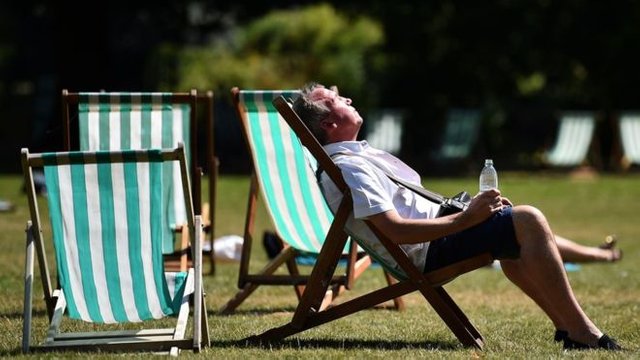
The June heat waves that impacted much of the UK and Western Europe were made more intense because of climate change say scientists.
Forest fires in Portugal claimed scores of lives while emergency heat plans were triggered in France, Switzerland and the Netherlands.
Britain experienced its warmest June day since the famous heat wave of 1976.
Human-related warming made record heat 10 times more likely in parts of Europe the researchers say.
Full story at http://bbc.in/2tvq7Wg
Source: BBC News
Angela Merkel promises to tackle Donald Trump on climate change at G20 summit

Southern and Midwestern US states will suffer the biggest economic losses from climate change, according to a new study. Some of these areas, already among the poorest in the country, stand to lose as much as 20 percent of the value of the goods and services they produce. In other words, climate change will make poverty worse in many areas.
The consequences of climate change will vary among regions in the US, according to a new study published today in Science. Counties along the Atlantic Coast will suffer the biggest losses from rising sea levels and more intense hurricanes, but the South and the Midwest — regions that already suffer from heatwaves and droughts — are threatened by hotter temperatures. Heat can slow workers, mess up agriculture, and increase energy demands and costs.
Understanding how climate change will affect the economy is key for designing policy. It also makes the threat of climate change a bit more tangible. Fighting climate change is a good investment, and doing nothing will cause the overall US economy to suffer. Each 1 degree Celsius (2.1 degrees Fahrenheit) increase in temperature may cost 1.2 percent of the country’s gross domestic product, today’s study found.
"The 'hidden costs' of carbon dioxide emissions are no longer hidden, since now we can see them clearly in the data," study co-author Amir Jina, a postdoctoral scholar in the department of economics at the University of Chicago, said in a statement. "The emissions coming out of our cars and power plants are reshaping the American economy. Here in the Midwest, we may see agricultural losses similar to the Dust Bowl of the 1930s."
Full story at http://bit.ly/2tviq2A
Source: The Verge
Prepared by @SydesJokes
Original post from: http://Blog.CrowdifyClub.com/
Register for your FREE CrowdifyClub account.
Check the "Crowdify CleanTech"Facebook Group: https://www.facebook.com/groups/108785324695/